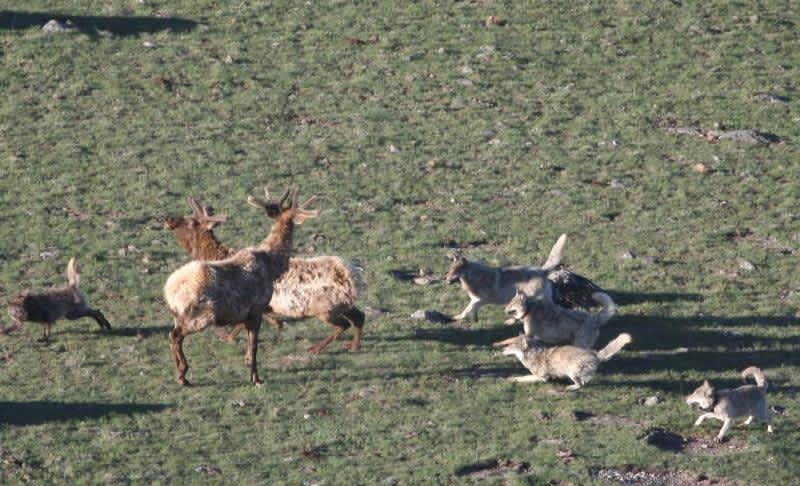Lawmakers Introduce Bills to Protect Wolf Hunting in Great Lakes States, Wyoming
OutdoorHub Reporters 02.16.15

Congressional lawmakers from Minnesota, Michigan, Wisconsin, and Wyoming introduced two bills last week that would preserve the ability of state agencies to manage wolf populations. The bills are a direct response to a federal court ruling in December that returned wolves in the Great Lakes states to the endangered species list, once again placing them under federal protections.
That decision was hotly contested by a number of conservation groups, state wildlife agencies, and farmers, who say that the population of gray wolves in the region has only increased since they were delisted by the US Fish and Wildlife Service (USFWS) in 2012. One of the bills introduced last week would return Great Lakes wolves to their delisted status. A similar bill included Wyoming, which had its wolf protections restored after a federal court ruling in September.
“When it comes to the gray wolf in Wyoming and the Western Great Lakes, the science speaks for itself—the wolves are recovered and will continue as such under capable state management,” US Representative Cynthia Lummis (R-Wyoming), who co-sponsored one of the bills, said in a press release.
Some critics of US District Judge Beryl Howell’s ruling in December argue that the Howell did not take into account that wolf populations are stable and even rising in many places, despite the introduction of hunting seasons.
“Plain and simple, state agencies—not the federal government—are best qualified and equipped to manage wolves just as they manage all other wildlife,” said David Allen, president and CEO of the Rocky Mountain Elk Foundation (RMEF), in a recent statement. “The judge did not rule that the Great Lakes wolf population is ailing. On the contrary, it’s thriving—a fact that is echoed by wildlife scientists.”
Wolf advocates say that the wolf populations in these states are still too vulnerable to be hunted, and widely applauded the court ruling to return the species to the endangered species list.
“It was a mistake to prematurely strip away protections for wolves in the Great Lakes region, and now that wrong is being righted,” Collette Adkins Giese, a lawyer at the Center for Biological Diversity, told the Journal Sentinel. “These wolves still need federal protection, and this decision will help put them back on the long road to recovery.”
According to the USFWS, there are currently an estimated 3,686 wolves in the Great Lakes states. Minnesota itself has a population of over 2,200, which is the largest of any state other than Alaska. Wyoming has an estimated 300 wolves.

